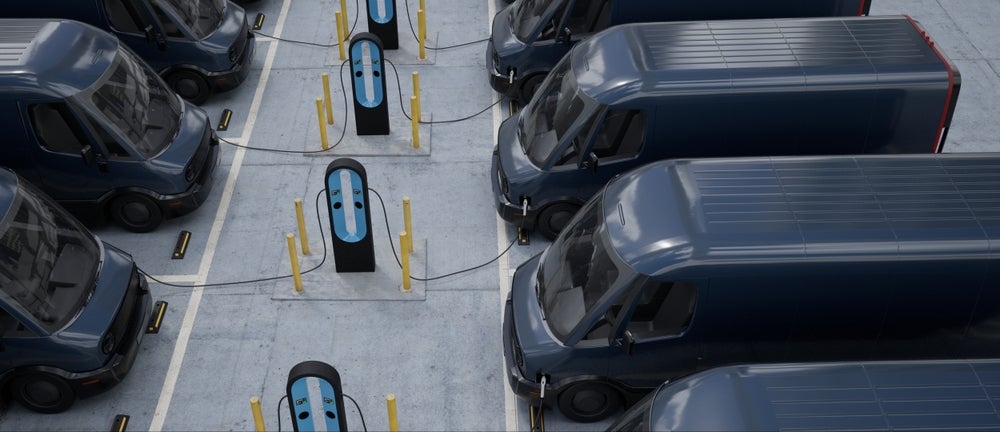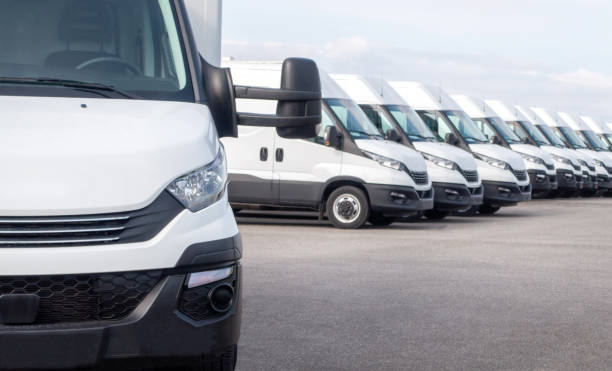
With over 20 years at LeasePlan, Matt Dyer was recently named chair of the BVRLA. Jonathan Minter asks what he sees as the big issues for the vehicle rental and fleet market
Asked to describe the current fleet and lease market, one word Matt Dyer, managing director of LeasePlan UK and now chair of the British Vehicle Rental and Leasing Association (BVRLA), uses repeatedly is “dynamic”.
“We’d have said this 10 years ago, but it does feel very dynamic right now, with a large number of very major topics that are present, and are looking and feeling like both challenges and opportunities for the rental and leasing sector,” he notes.
Dyer was named BVRLA chair in May, just as the industry faced a number of these major challenges and opportunities; one of the aims of the association will be to ensure it remains part of the discussion around these topics, and stay in a position where it can influence industry and political debates. An example of this is around air quality, and recent public worries around diesel cars.
Dyer says the discussion around this can often simply become “diesel equals bad”, when the subject is much more nuanced than that. Some of the new technologies – particularly since Euro6 – are better for the environment.
Dyer adds: “The challenge is to cycle products into the newer technology at a relatively quick rate, rather than simply defaulting to a diesel-equals-bad discussion.
How well do you really know your competitors?
Access the most comprehensive Company Profiles on the market, powered by GlobalData. Save hours of research. Gain competitive edge.

Thank you!
Your download email will arrive shortly
Not ready to buy yet? Download a free sample
We are confident about the unique quality of our Company Profiles. However, we want you to make the most beneficial decision for your business, so we offer a free sample that you can download by submitting the below form
By GlobalData“There is a role for us as a rental and leasing association to really go after that. The stats around adopting new diesel technology are very strong. The age of our fleet is quite young. Circa 75% of our vehicles are already in the most advanced Euro-compliant category.”
One possibility the BVRLA has suggested has been a diesel scrappage scheme. The plan had seemed to gain some favour prior to the election, and was included in the government’s draft clean air strategy. The election result, however, has made it hard to predict future government policy.
Dyer says: “Whether the government will go for the diesel scrappage scheme or not, I am not sure. It is difficult to see where its intention is now. It announced the consultation during the election, so we need to see more in terms of where its wants to take this to.”
Regardless of whether plans for diesel scrappage are actually acted up, Dyer says such a scheme would be the right intention, as looking to replace older diesel technologies would make sense in the current political environment.
Dyer hopes the government bears in mind that for much of the past decade or more, incentives and structures have been in place to help encourage diesel uptake.
“If you look back into that period, our industry played a very positive role in responding to what we believed was the right challenge at the time, which was CO2 emissions. Now we have a new challenge on the table and we need to be ready to evolve,” Dyer adds.
The current state of the government is, in general, something the BVRLA is having to work hard to contend with, especially as the government has begun to change tax policy regarding vehicles with a fast turnaround.
Dyer notes: “If we go back about 18 months ago, I think as an association we were having good dialogue. We were making sure there was long-term thinking around the tax regime in place within our particular sector.
“Then relatively rapidly – and it was around the time of the VW emissions scandal – the chancellor reversed his decision to remove the diesel surcharge, almost overnight, which clearly impacted very rapidly the decisions that people had made around the type of vehicle they would have, because their tax would, by definition, go up.”
He understands why the move was made – removing the diesel surcharge at a time when air quality was becoming a high-profile topic may have proved politically naïve – but Dyer complains it was done in a short-term way, without offering a chance to plan around it.
Since then, Dyer says the industry has been playing a short-term game, where the government has been making moves with little notice given to the industry.
The changes to diesel policy, alongside changes to the VED and so on, have left Dyer asking what positive stimulus is out there.
“What we have seen is tax revenue go up, and therefore people have felt like they don’t have any other options. I would say we still have a lack of clarity around how the government is really going to tax AFVs, pure electric vehicles – that is still unclear.”
The fleet industry has, historically, been at the forefront of the adoption of electric vehicles, and thanks to the advanced use of telematics to find when alternative fuel types are appropriate, this looks set to continue.
This is not to say diesel vehicles are about to die off, however. Instead, Dyer imagines fleets will become increasingly sophisticated, with managers looking at the different needs of the different parts of fleets, and ensuring that choices of technology, powertrains and so on, are appropriate for their requirements.
As things stand, this will result in fleets still containing diesels; there are still parts of the sector, in particular commercial vehicles, that “absolutely” still need to be diesel technology, reinforcing Dyer’s point about the need to help customers cycle out older parts of fleets for newer, clean technologies.
Despite this, electric cars and ultra-low-emission cars in general are still under-represented in the market, and are likely to grow. Such a move would deprive the treasury of taxes paid on higher emission vehicles and on traditional fuels, which might see a future change in government tax policy.
Dyer concludes: “The more collaborative the government and the treasury can be on that, the better. The whole landscape is changing. If you look down the line, there is far less individual ownership and usage of vehicles. So there needs to be an open and collaborative conversation.
That’s where someone like the BVRLA can engage in the right way.”







